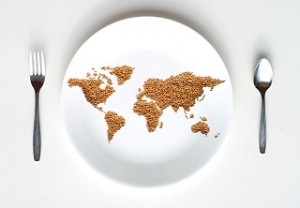
More evidence that low-calorie sweeteners are bad for your health
Studies show that artificial sweeteners can raise the risk of hypertension, metabolic syndrome, type 2 diabetes and heart disease, including stroke.

In sustainable food circles, there is a new concept that is becoming increasingly important – ‘True-Cost Accounting’.
It’s the idea that we need to start accounting for all the additional costs and benefits associated with food production and farming that we don’t pay for when we buy our food.
Our industrialised food system is dining out on the earth’s finite resources, damaging planetary ecosystems and impacting public health. Placing a clear monetary value on the benefits and impacts of different food-production systems, would enable the introduction of policy mechanisms to discourage damaging practices and encourage sustainable food systems that deliver positive environmental and public-health outcomes.
There is an urgent need to start – and maintain the momentum of – a conversation about where out food system is going and how it needs to change. In particular, raising public awareness of the need for true-cost accounting in our food system is of critical importance.
In December a major conference, True-Cost Accounting in Food and Farming , organised by the Sustainable Food Trust, will bring to the fore significant research on the subject, debate its methods, and outline the policy shifts needed to create a more equitable economic environment for the production of sustainable food.
The conference brings together an impressive roster of speakers including Mike Clarke, chief executive of the RSPB; Ellen Gustafson, co-founder of Food Tank; Dr. Pavan Sukhdev, CEO of GIST Advisory; and Radio 4’s John Humphrys, to discuss the development of a new economic model for a sustainable future (for details and a chance to win tickets see below).
Unstable in the face of change
Our present system of food production and distribution is built on a range of practices that are unsustainable, especially as we are nearing the tipping points of climate change, ecosystem collapse and health issues such as rising obesity levels and type-II diabetes. It privileges these unsustainable practices by redistributing the costs of their damaging impacts from the private sector to the public sector.
But why do we as consumers need to understand true cost accounting in our food? We’ve all become accustomed to paying less for our food and the cost of food has increasingly become a smaller portion of the household budget.
There is a misconception that if we ensure the true cost of our food production is paid for the price of food will rise. However, the cost of food is rising anyway, and the UN has predicted a 40% rise in the cost of food over the next decade. We, as the consumer, have the power to help make a change. Most importantly we need to remember that the choices we make do make difference and can have a huge impact in our global food system.
With the pressure on food production increasing against the backdrop of climate change and the rising cost of fossil fuels, it is important to push for changes in our food system that will prevent prices rising as much as they might otherwise do.
Making sustainable food affordable
Ensuring our food systems are sustainable could help mitigate the rising cost of food by localising food production, encouraging regional diets, and eliminating the onerous cost of fossil fuel based fertilisers, pesticides, and herbicides that many industrial farmers are dependent upon.
In a rebalancing of costs through true-cost accounting, we are simply moving costs that we already pay, from the public sector, back to where they belong in the private sector. This will level the economic playing field and bring down the price of sustainably produced food.
Making sustainable food more affordable will bring long term benefits by preserving our natural capital and eco-system services, and increasing healthy eating. Isn’t this a truly 21st century solution?
COMPETITION
The True Cost Accounting in Food and Farming conference takes place on Friday 6th December 2013.
As a special offer to NYR Natural News readers (in the UK only) Sustainable Food Trust have 2 tickets to give away .
To win, email info@naturalhealthnews.uk including the words ‘SUSTAINABLE FOOD’ in the subject line and be sure to include your name and contact details in the email.
Entries must be received before 5pm Friday 29th November. The winner will be drawn at random after that date and notified no later than the morning of December 2nd.

Please subscribe me to your newsletter mailing list. I have read the
privacy statement